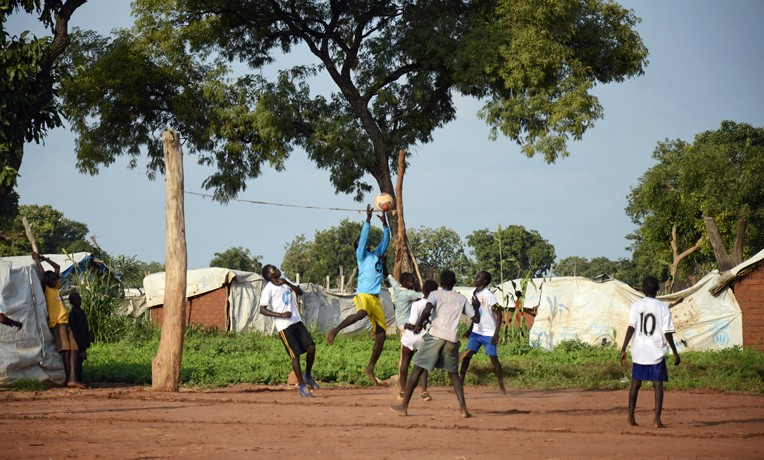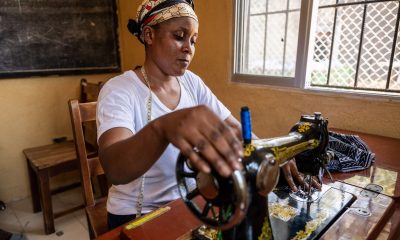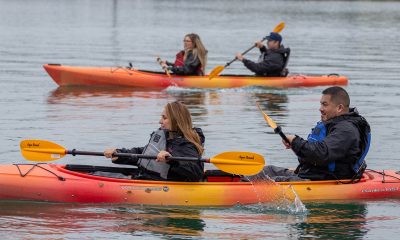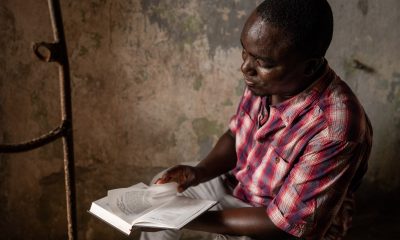Refugees in South Sudan have time to enjoy themselves with a game of soccer and words from the Gospel

Kalo shares a message with the boys before they begin their game.
Kalo and I began walking from the base as the sun started its descent. We walked through the red clay to one of the many large, dirt soccer fields in the refugee camp. Kalo is in charge of soccer ministry throughout the entire camp. Each neighborhood in the settlement has a team and a coach for that area. I met the teams from two different neighborhoods and their coaches.
Before the game, both teams sat in the shade provided by the only large tree at the edge of the field. One boy shared a passage in Matthew 5. He had written the name of Jesus along the edges of the pages. After he shared about loving not only our neighbors but also our enemies, we prayed, and each coach gave encouragement to the two teams sitting together as one.
One team wore colored jerseys, while the other team wore crisp, white jerseys that were donated to the sports ministry program. By halftime, these jerseys were completely red from falling on the ground and running through the clouds of red dust that they kicked up as they played and scuffled.
I couldn’t help but be impressed by the feet of these boys. A lucky few had shoes to play in, but the majority played barefoot. Watching them skid and slide across dirt and rocks amazed me. At one point in the first half of the match, a young boy came to the side and removed his shoes because he could control the ball better with his bare feet.
Their strength was also incredible. The older teenagers had lean, strong muscles. I was tempted to be impressed by their work ethic and their dedication to soccer, but then I remembered where I was—a refugee camp. These men are strong because they were forced to become that way. They traveled by foot from their homes to escape chaos. They carry bags of food weighing more than 50 kilograms during food distributions; they have never seen a chainsaw, only axes. They use shovels and know manual labor; big machinery is nonexistent here. These boys aren’t really boys; they have been forced to become men.
In that moment, I was thankful for the game of soccer and the release of having fun. It’s an amazing hour or two of freedom to play a game they love and to be coached by men who disciple them along the way, throughout each practice and game.
At halftime, there was another time of encouragement, with each individual team at opposite ends of the field. Kalo talked with both teams. A boy distributed water, one cup at a time, to each boy in the circle as they listened to advice from Kalo and their coaches on what they should do.

As the game continued, the sun cast long, smoke-like shadows of the boys at they ran up and down the field. The score was 1-0, and at the end of the game, both teams came together again as one. Kalo spoke to them about the message the young boy read at the beginning of the game from the book of Matthew and encouraged them. With the final words said from the coaches and a small cheer from me on the outskirts of the increasing circle of surrounding community children, we prayed.
The sun sunk, and people dispersed. Even the curious, rowdy crowd of children that had lingered for the last few hours, hoping and dreaming to play like the older ones in the match—and trying to imitate them on the side of the field with their tiny soccer ball of balled up socks—began to disappear.
On their routes home, only a small group tagged along with the older players they looked up to. Following the tough, weathered feet in front of me, I was thankful for the release of a soccer game and the unity of the body of Christ.






